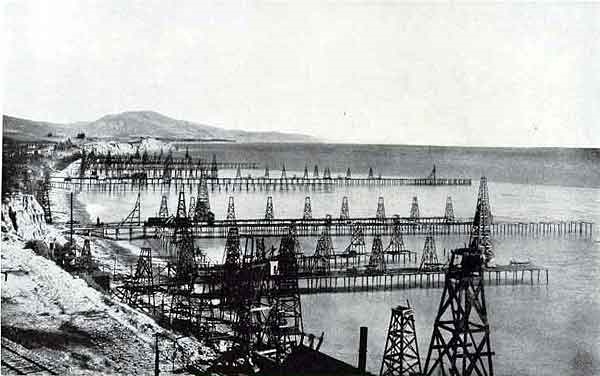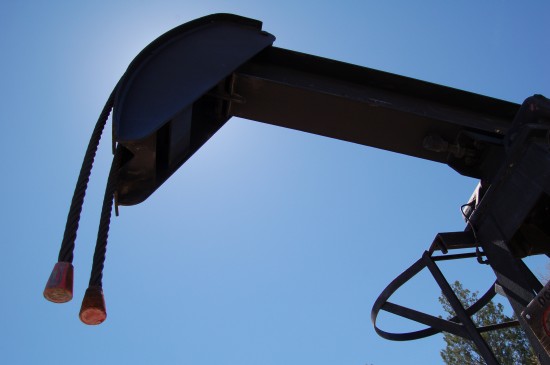Unprecedented
By:
June 2, 2010

It’s a funny locution, offshore. As if the rig is an accident of terrestrial displacement — a little patch of shore, really, only it’s … off. Not at sea, not maritime. And yet, most of oil rigs are ships, properly speaking. Many move from place to place as their owners sign new months-long leases on seafloor claims. They have captains. And when they fail, ultimately it is not government nor corporation nor gasoline consumer that pays, but the sea.
The first offshore oil rig was erected in 1891, in the relative shallows of an Ohio lake. Today, some 4,500 offshore oil platforms supply 25 percent of the oil consumed by the US. A small but not insignificant number of these drill at the depths of the likes of the Deepwater Horizon that blew out on April 20. The well drilled by Deepwater Horizon only begins at the seafloor’s one-mile depth; it continues more than two miles beyond that into the Earth’s crust.
The dangers posed by Deepwater Horizon and its ilk were hardly unheralded. And yet as the blowout continues unabated, pundits and officials alike use words like “unprecedented” and “unanticipated,” while the effort to bring it under control (or at least to hide it under water with chemical dispersants) is talked about as a “massive experiment.” Too big to comprehend, too deep and thoroughgoing to contain, the spill becomes an instant metonym, the signifying part for aerosol wholes. David Brooks calls it the “objective correlative of the country’s inability to govern itself.”
It’s none of these things, though. When my grandfather began working on land-based oil rigs shortly before the Second World War, people had already been drilling at sea since before his own grandfather was born. (He once took me to the pumpjack he maintained in the Odin fields of Southern Illinois; while the horse head and walking beam swung overhead, he turned a small tap, and crude flowed out into my cupped hands.)

Deepwater Horizon and its ilk, to be sure, represent several cutting edges in engineering and marine technology. But this edge has cut a great swathe; its technologists and planners — and the rest of us — have had plenty of opportunity to learn and prepare for the worst this Faustian work can do. And when the blowout in the Gulf finally dissipates and its damage is contained or accepted, the thousands of other wells remain: a toxic matrix, a poisoned plumbing system — each one of us with a hand on the tap.
But we’ve bewitched ourselves with lifetimes of language, with the jargon of shock and awe. The feats of our scientists are stupendous; the yawning abysses of space, astonishing; the secrets of life plumbed by our geneticists unprecedented, unbelievable. Sit back and watch; enjoy the ride. This spectacle brought to you by Beyond Petroleum™:
Do you see yourself among the hopeful lovelies living beyond the reach of fear, facing the future with beatific smiles and glistening eyes? “Beyond crisis, a solution”; would that it were so.
